Lawyers Near MeNorth CarolinaMecklenburg CountyCharlotteElizabethEast 5th Street
TERRY BUILDING, 1801 E 5th St, Charlotte, NC 28204, USA
Explore 'Legal Helpers' in Charlotte, NC, your gateway to understanding free and low-cost legal assistance in North Carolina. Learn about various non-profit organizations and resources dedicated to helping low-income residents with civil legal issues, from family law to housing and consumer protection.
For many residents across North Carolina, navigating the legal system can be a daunting and expensive endeavor. Whether it's a landlord-tenant dispute, issues related to family law, or concerns about consumer rights, access to legal counsel is often a significant barrier, especially for those with limited financial resources. In Charlotte, North Carolina, the term "Legal Helpers" can refer to a vital network of organizations and resources dedicated to providing free or low-cost legal assistance, ensuring that justice is accessible to all. This article is designed to help local North Carolina users understand where to find these crucial "Legal Helpers" and how they can benefit from their services.
While a single entity named "Legal Helpers" at the provided address might serve as a contact point or a related legal service, it's more indicative of the broader landscape of legal aid and advocacy available in the Charlotte area. Numerous non-profit organizations and initiatives work tirelessly to bridge the "justice gap" in North Carolina, offering a lifeline to vulnerable populations. These "Legal Helpers" are committed to empowering individuals by providing essential legal advice, representation, and educational resources for civil matters. They believe that everyone, regardless of income, deserves fair treatment under the law. Understanding this network is key for any North Carolina resident seeking support in a civil legal issue without incurring prohibitive costs.
The provided address, TERRY BUILDING, 1801 E 5th St, Charlotte, NC 28204, USA, suggests a location within a building that may house various offices or legal services. This address is situated in a central and well-known part of Charlotte, often associated with medical and professional offices, making it relatively accessible for residents throughout Mecklenburg County and the surrounding North Carolina communities.
Being located on E 5th Street, a major thoroughfare, ensures good connectivity. For those traveling by car, there are likely parking options in the vicinity, although it's always advisable to confirm specifics for your visit. Charlotte's public transportation system, including bus routes, would likely offer convenient access to this area, providing an alternative for clients who rely on public transit. The accessibility of this location underscores the commitment of "Legal Helpers" (as a concept representing various legal aid providers) to be within reach of the community they serve. General operating hours for most legal aid organizations are typically Monday through Friday during standard business hours, making appointments convenient for many schedules. It's recommended to contact any specific "Legal Helper" organization at this address or through their phone number to confirm their precise location within the Terry Building and their specific hours of operation.
When referring to "Legal Helpers" in Charlotte, it typically encompasses a range of non-profit organizations and initiatives that provide free or low-cost legal services for civil matters. These services are vital for low-income individuals and families who otherwise might not be able to afford legal representation. The types of services offered generally include:
Family Law Assistance: This often includes help with simple divorces, child custody and visitation issues, domestic violence protection orders, and other family-related legal challenges. Organizations like Legal Aid of North Carolina frequently offer self-help clinics and direct assistance in these areas.
Housing Issues: Legal Helpers often assist with landlord-tenant disputes, eviction prevention, foreclosure assistance, and issues related to housing discrimination. Ensuring stable housing is a critical focus for many legal aid providers.
Consumer Protection: This category involves assistance with unfair sales practices, debt collection issues, mortgage problems, and general consumer fraud. Legal Helpers aim to protect vulnerable individuals from predatory practices.
Employment Law: Services might include advice on wage disputes, workplace discrimination, and other employment-related concerns.
Public Benefits: Assistance with navigating government benefits programs, ensuring eligible individuals receive the support they are entitled to.
Simple Estate Planning: Some "Legal Helpers" may offer assistance with basic wills and powers of attorney, especially for seniors or those with specific needs.
Criminal Record Expunctions: Helping individuals clear certain past criminal offenses to improve employment and housing opportunities.
Veterans Legal Services: Dedicated programs often assist veterans with specific legal needs related to their service or re-entry into civilian life.
Brief Advice and Self-Help Resources: Many "Legal Helpers" provide quick legal advice via phone helplines, online platforms (like NC Free Legal Answers), or through workshops and self-help materials to empower individuals to represent themselves in simpler matters.
These organizations focus on civil law matters, meaning they generally do not handle criminal cases, which are typically addressed by public defenders for those who cannot afford private counsel.
The "Legal Helpers" network in Charlotte and across North Carolina offers several key features and advantages for local residents seeking legal assistance.
Focus on Low-Income Individuals: A primary highlight of these "Legal Helpers" is their dedication to providing free or low-cost legal services specifically to low-income individuals and families who meet certain eligibility criteria. This ensures that economic barriers do not prevent access to justice.
Diverse Practice Areas: These organizations cover a broad spectrum of civil legal issues, from family law and housing to consumer protection and employment, addressing the fundamental legal needs of the community.
Community-Oriented Approach: Many "Legal Helpers" are deeply integrated into the North Carolina community, with offices in key cities like Charlotte. They often collaborate with local bar associations, pro bono attorneys, and community partners to maximize their reach and impact.
Variety of Service Delivery: Assistance is provided through various methods, including full legal representation for eligible cases, brief advice via helplines, self-help clinics, and online resources. This multi-faceted approach caters to different levels of need and client comfort.
Pro Bono Programs: Many "Legal Helpers" rely on and facilitate pro bono efforts from private attorneys who volunteer their time and expertise, significantly expanding the capacity to serve more clients. For instance, programs connect volunteer attorneys with clients for free or low-cost consultations.
Educational Resources: Beyond direct legal assistance, these organizations often provide valuable community education, workshops, and accessible legal information (including online videos and downloadable guides) to help North Carolina residents understand their rights and legal processes.
Language Accessibility: Many "Legal Helpers" offer services in multiple languages, including Spanish, and provide interpreters when necessary, ensuring that language is not a barrier to accessing legal help.
Addressing the Justice Gap: Collectively, these organizations play a crucial role in closing the "justice gap" in North Carolina, providing essential legal support to those who would otherwise be unrepresented in critical civil matters.
These features underscore the vital role that "Legal Helpers" play in upholding justice and supporting the well-being of North Carolina's diverse communities.
The very nature of "Legal Helpers" in North Carolina is to offer services that are either free or significantly low-cost, effectively acting as an ongoing "special offer" for eligible individuals. These organizations are primarily funded by grants, donations, and pro bono contributions, allowing them to provide legal assistance to those who cannot afford traditional legal fees.
Free Legal Aid: Many services, especially from organizations like Legal Aid of North Carolina and Charlotte Center for Legal Advocacy, are provided entirely free of charge for clients who meet income eligibility guidelines.
Low-Cost Consultations: The North Carolina Bar Association's Lawyer Referral Service offers initial 30-minute consultations with private attorneys for a reduced fee (e.g., $50), providing an affordable entry point to legal advice.
Free Online Legal Answers: Platforms like NC Free Legal Answers allow eligible low-income residents to submit non-criminal legal questions online and receive free answers from volunteer attorneys.
Free Self-Help Clinics and Workshops: Various "Legal Helpers" frequently host free clinics and workshops on topics like simple divorce, child custody, and expunctions, providing valuable information and sometimes even help with filling out forms.
Prospective clients are strongly encouraged to contact these organizations directly through their provided phone numbers or websites to confirm eligibility requirements and learn about the specific services and free/low-cost opportunities available.
For North Carolina residents seeking legal assistance from "Legal Helpers," direct contact with the various organizations is the best approach. While the address provided (TERRY BUILDING, 1801 E 5th St, Charlotte, NC 28204, USA) might be a general location for some services, specific "Legal Helpers" often have their own direct contact details.
General Phone Line for Legal Helpers (as provided): (704) 200-2822
Mobile Phone: +1 704-200-2822
However, for more specific assistance, residents in North Carolina should consider reaching out to known legal aid providers:
Legal Aid of North Carolina (Charlotte Office): (704) 594-8662 (General helpline for civil issues: 1-866-219-5262)
Charlotte Center for Legal Advocacy: (704) 376-1600 (Toll-free outside Mecklenburg County: 1-800-438-1254)
North Carolina Bar Association Lawyer Referral Service: 1-800-662-7660 or (919) 677-8574 (for low-cost private consultations)
NC Free Legal Answers: Visit nc.freelegalanswers.org (online platform)
It is always advisable to call ahead to inquire about eligibility, services offered, and to schedule an appointment.
For any resident of North Carolina, particularly those in the Charlotte area, who finds themselves in need of legal assistance but faces financial constraints, the network of "Legal Helpers" epitomizes a profoundly suitable and essential resource. While the name "Legal Helpers" at the specific address may point to a particular service, it broadly signifies the collective efforts of various non-profit legal organizations that are deeply committed to ensuring justice is not a privilege, but a right accessible to all.
What makes these "Legal Helpers" so suitable for locals is their direct focus on the civil legal issues that most impact everyday North Carolinians – from securing safe housing and protecting consumer rights to navigating complex family matters. These organizations are tailored to meet the specific needs of low-income individuals and families, providing services that are either free or significantly subsidized. Their multi-faceted approach, encompassing direct representation, brief advice, self-help clinics, and online resources, ensures that assistance is available in various forms to suit different situations and levels of need. Furthermore, the commitment to language accessibility and community engagement means that diverse populations within North Carolina can find the support they require. By leveraging the expertise and compassionate service offered by these "Legal Helpers," residents can gain crucial legal guidance and advocacy, ensuring their rights are protected and their voices heard, ultimately fostering a more equitable and just community across North Carolina.
TERRY BUILDING, 1801 E 5th St, Charlotte, NC 28204, USA
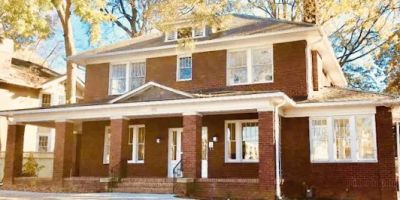
352 N Caswell Rd, Charlotte, NC 28204, USA

100 Queens Rd #250, Charlotte, NC 28204, USA

438 Queens Rd, Charlotte, NC 28207, USA
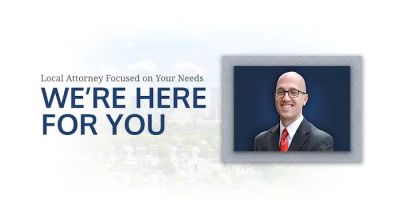
128 N McDowell St, Charlotte, NC 28204, USA
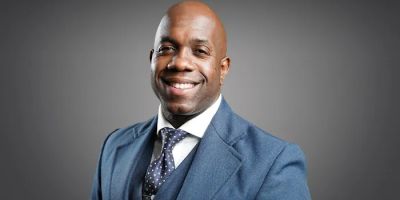
122 N McDowell St, Charlotte, NC 28204, USA

216 N McDowell St UNIT 102, Charlotte, NC 28204, USA
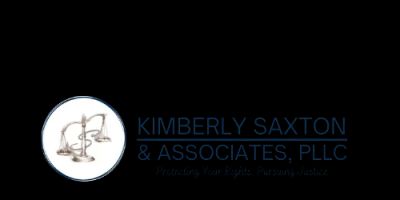
101 N McDowell St Suite 126 Suite 126, Charlotte, NC 28204, USA

817 E Trade St, Charlotte, NC 28202, USA

301 S McDowell St #610, Charlotte, NC 28204, USA

1901 Central Ave, Charlotte, NC 28205, USA

725 E Trade St UNIT 215, Charlotte, NC 28202, USA
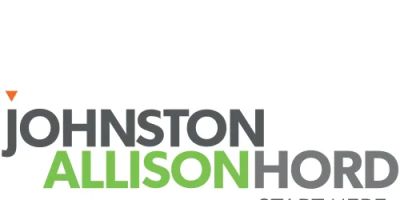
1065 E Morehead St, Charlotte, NC 28204, USA
